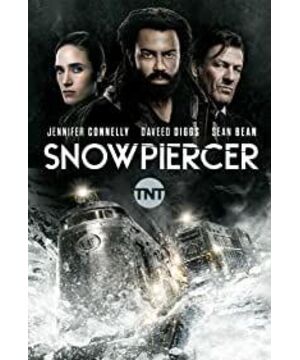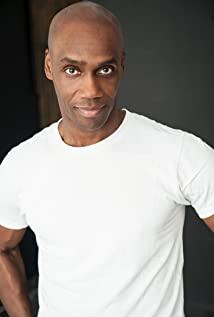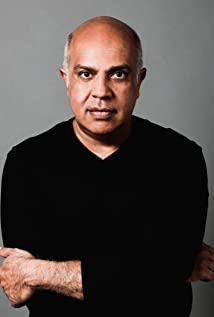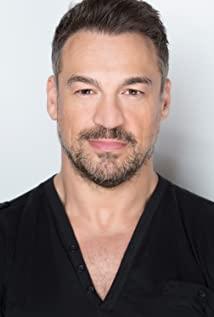The drama version of "Snow Country Train" has been updated to the eighth episode. I still feel unclear after seeing it. There is no shock and conciseness of the movie version at all. It can be said that it is not a successful expansion.
The original comic book itself sets the sci-fi and class conflicts very closely. It is a play that is particularly suitable for screens.
The end of the world. Noah train. Only those who have a ticket can go.
Don't those who have votes are rich or expensive? The 1001 trains gathered the richest people in the world.
However, the poor also have the right to live, so a group of poor people risked their lives and rushed onto the train.
Anyway, the world is about to become an ice cave, staying is also dead, and rushing is also dead, it is better to rush.
I understand this bravery.
However, I would like to ask those soldiers who use their lives to close the car doors, what mentality do they work?
They won't go up after the door is closed.
There are many things in TV dramas that cannot be understood by logic.
On the one hand, some people do everything in order to get into the car to survive; on the other hand, some people have supernatural greatness. Compared with the conflict of the train, it seems to be a transcendent NPC.
The poor who had no tickets rushed into the car and were arranged in the rear compartment.
Now that you are in the car and everyone is in the same car, let's do their own duties.
The entire social class is immediately condensed and magnified.
The people in the first-class carriages are responsible for giving money and enjoyment. Because of their investment, trains can be built, have so many facilities, and can operate normally. A large part of the services of other carriages is to meet their requirements for life. At this moment, only they can ask for life. Comply with the twenty-eight law. And more naked.
The second-class carriages belong to the space of middle-class elites and train administrators (excluding rulers). They use their wisdom to keep the train running.
The people in the third-class carriages are in charge of chores. All kinds of labor that require manual labor. They use the value of their work to create reasons for themselves to stay in the car. Such as cleaning industry, such as catering industry. Such as the sex industry.
Most of the people who only have the tail car do not work, but often riots. Because of their rebelliousness, sometimes arranging personnel to go out to work and managers are like enemies. Three people work with two soldiers. They strongly demand equal pay for equal work and equal pay for all trainees. Yes, the slogan resembles communism.
But this is not the same as communism as I understand it.
The most challenging setting for me in the drama version is that you have made no contribution to the train, but you want to seize power?
Why could the proletariat win the victory with one response? We are working. Our problem is that the fruits of our labor have been exploited by borers. People can't bear it, and social distribution is uneven.
Therefore, you have to participate in labor to participate in distribution.
Therefore, I really didn't understand this wave of people in the tail car saying so righteously.
As the man in the tail car, the only policeman on the train was found by the train manager in the process of investigating the murder. He discovered the secret of the train’s founder who did not exist, and then planned to use this to rebel.
As a manager, the heroine does not benefit herself and others. One person holds several positions, engineer, announcer, waiter, maintenance worker, etc. . . In short, the 1001 train, no matter where anything happened, she can be there on call on high heels. As an MIT elite, she is dedicated to maintaining the normal operation of the train and protects the life on the 1001 train, but In order to occupy the locomotive, the male protagonist is thinking about how to kill the female protagonist all day long.
I just want to ask,
Fuck the hostess, can you drive this car?
Fuck the hostess, this car is out of order, will you fix it?
You want to say that the people in the third-class carriage are going to rebel, I can understand. Because they represent the working people. They are indeed the main labor force in maintaining the operation of the train, and it is understandable to ask for more feedback.
However, the people in the rear carriage do not have tickets themselves and did not contribute to the construction and operation of the train. But they always complain that they don't have human rights.
Every time I see the heroine, I feel that the screenwriters of this play have three strange views.
Unless she is forced to blacken and say that they have been doing human experiments, which is unacceptable, I feel that she is the perpetual motion machine of this train.
When the train is in danger of destruction, when the hero tries to kill her, she begged the hero to say that the train is going to be destroyed. You let me fix it, and only I can. After risking his life to repair the car, he hid his merit and fame deeply, changed the clothes of the waiter, stood in the corner, watching his fellow gunner and engineer accept cheers among the crowd.
Not self-interested, dedicated to benefit others, do not seek rewards, do not seek honor, what needs to go, where to put it bright,,,,
She is not the greatest person on Noah's train, who is?
Mistress, what do you picture?
It can be said that the rationality of the class antagonism created by the movie version has disappeared in the drama version, and working people like me who live at the bottom of society cannot be excited because they want to make a revolution. It can be said that it is an American drama that has fallen below expectations.
View more about Snowpiercer reviews











